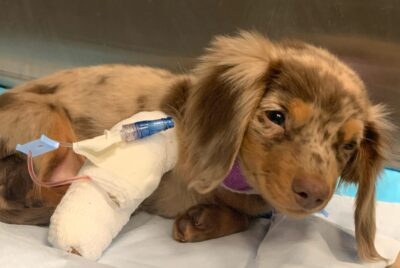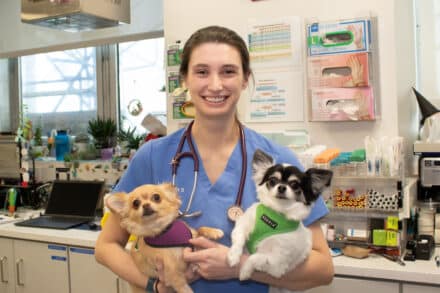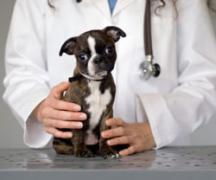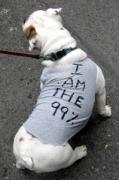Is There a Parvovirus Epidemic in New York City?

Is There a Parvovirus Epidemic in New York City?
On top of the current COVID-19 pandemic, there seems to be a dog epidemic (an “epizootic”) of parvovirus going on in New York City. Over the summer, NYC veterinarians noticed a slight uptick in cases, but cases are much more prevalent now. On the Animal Medical Center’s overnight admission list, there is about 1 dog per night admitted with parvovirus, including a critically-ill 8-week-old puppy admitted over the weekend.
Parvovirus is a Tough Virus
Parvovirus is a very small but sturdy virus. Soap and water don’t kill it. It can live on the street, in the soil and on floors, sidewalks and other surfaces. Parvo, as it’s typically called, is not inactivated by hot weather, cold weather, snow, rain or sunshine. In fact, about the only thing that kills parvo is bleach, diluted 1:30 with water, applied to the contaminated surface for a minimum of ten minutes. A fresh solution of bleach should be made every day if you are disinfecting daily. Since the entire world cannot be sanitized with bleach, parvo can be anywhere. Additionally, recovered parvovirus patients can shed virus in their feces for as long as three to four weeks after recovery.
Parvovirus is Highly infectious
Parvovirus is spread by the fecal-oral route. When out walking, your dog can easily come into contact with parvo-laden feces. Sniffing might lead to licking or, if your dog’s feet get contaminated with parvo poop, grooming will lead to ingestion of the virus. If your dog is not protected by vaccination, the virus attacks rapidly dividing cells, most notably in the intestine and bone marrow. This accounts for the clinical signs of parvovirus: bloody diarrhea and a dangerously low white blood cell count.
Lessons from the 8-Week-Old Puppy
- Vaccination Works, But Multiple Vaccinations are Necessary: Unfortunately, full protection from parvovirus is not achieved with a single vaccine. The American Animal Hospital Association Canine Vaccination Guidelines recommend puppies be administered “sequential doses of a combination vaccine [including parvovirus] at an interval of 2 to 4 weeks until at least 16 weeks of age.”
- Protect Your Puppy from Parvovirus: Since parvo is everywhere, new puppy owners need to cautious about socializing an unvaccinated puppy. If your puppy is not yet fully vaccinated, you should:
- Avoid taking your puppy anywhere dogs congregate including dog parks, doggie day care or even walking in parks where there might be parvovirus. This complicates housebreaking for those without a backyard, but trust me, parvo is worse and way more deadly than housebreaking challenges.
- Limit socializing to puppy playdates with known healthy dogs with complete vaccinations.
A Hopeful Note
The canine parvovirus vaccine is highly effective when administered on the recommended schedule. If you aren’t sure your dog has been vaccinated, check with your veterinarian and update any lapsed vaccines as soon as possible.Canine parvovirus is not contagious to humans. There is a human parvovirus, not contagious to dogs, that is responsible for “fifth disease” in children. Best news of all, the eight-week-old puppy has been discharged from AMC’s isolation unit!






























